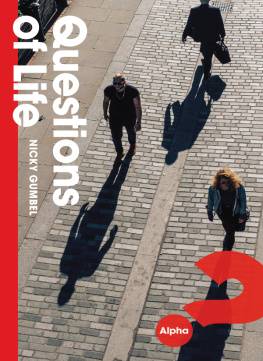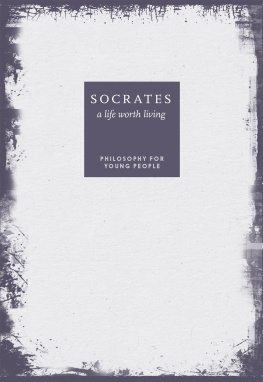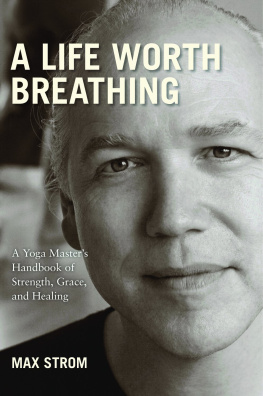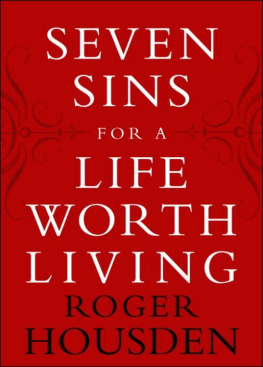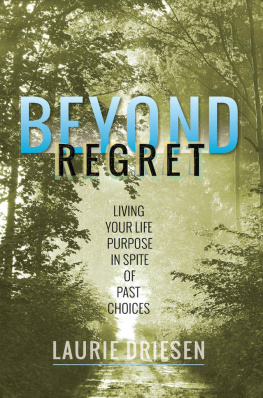A LIFE WORTH LIVING
NICKY GUMBEL

Copyright Nicky Gumbel 1993
The right of Nicky Gumbel to be identified as author of this work has been asserted by him in accordance with the Copyright, Designs and Patents act 1988.
First published 1993
This new edition 2010
First electronic edition 2012
No part of this publication may be reproduced or transmitted in any form or by any means, electronic or mechanical, including photocopy, recording or any information storage and retrieval system, without permission in writing from the publisher.
Trade Edition: ISBN 978 1 907950 02 5 (Print)
Direct Sales Edition: ISBN 978 1 905887 79 8 (Print)
ISBN 978 1 907950 47 6 (epub)
ISBN 978 1 907950 46 9 (Kindle)
Text illustrations by Charlie Mackesy
Scripture quotations taken from the HOLY BIBLE, NEW
INTERNATIONAL VERSION.
Copyright 1973, 1978, 1984 by International Bible
Society. Used by permission of Hodder & Stoughton Publishers, a member of the Hachette Livre UK Group.
All rights reserved.
NIV is a registered trademark of International
Bible Society.
UK trademark number 1448790.
Published by Alpha International
Holy Trinity Brompton
Brompton Road
London SW7 1JA
Email:
Website: alpha.org
CONTENTS
PREFACE
The purpose of this book is to introduce, in a simple and practical way, a key letter in the New Testament to those who are starting the Christian life and beginning to read the Bible. It is intended to be read in conjunction with the Bible passages either by an individual, or as a group study, with one person preparing the Bible study using the book as a resource.
In Questions of Life I set out the material we use on Alpha, a course for non-churchgoers, those seeking to find out more about Christianity, and those who have recently come to faith in Jesus Christ. At the end of the Alpha course, people often ask, What do I do now? One of the things I encourage them to do is to study the letter to the Philippians. The material in this book is based on a number of talks that I have given on that subject.
I am so grateful to the many people who have been willing to read the text and offer constructive criticisms. In particular I would like to thank Dr Roland Werner, Preb. John Pearce, Ken Costa, Jon Soper, Helena Hird, Jo Glen, Tamsen Carter, Lulu Wells, Zilla Hawkins, Jamie Haith and Patricia Hall. Finally, I want to thank Philippa Pearson Miles who typed the manuscript and numerous corrections with good humour and superb efficiency.
INTRODUCTION
In the future, scientists may be able to prolong life, but will it be worth living? writes Nigel Hawkes in The Times . Apparently, an Oxford professor claims it may be possible to prolong life for many people to the age of 115. But Nigel Hawkes is right to ask, Will it be worth living? Increased lifespan is of little value unless it is for a life worth living.
The apostle Paul did not see the prolonging of life as a major objective. Indeed, he regarded death as something of even greater worth (Philippians 1:21). Yet for him Jesus Christ had made his life profoundly worth living. In the letter to the Philippians, Paul writes directly and indirectly about why this is the case and how it can be for his readers as well.
In this book we will look at some of the new things Jesus Christ brought to Pauls life and to the lives of the Philippians, which made their lives so supremely worth living. Jesus Christ is the same yesterday and today and for ever (Hebrews 13:8). What he did for Paul and his readers he can do today for you and for me.
Before we look at this in detail, it is helpful to see the historical background into which Paul is writing and five remarkable features of this letter.
First, the place was remarkable. Paul chose the strategic city of Philippi for the first European church plant in AD 52. In modern times he might have chosen Geneva, Strasbourg, Berlin, Brussels or even London. Philippi, now a ruin in North Eastern Greece, was a strategic city in the ancient world. It had the natural advantages of a productive soil. Its gold and silver mines, which were exhausted by the time of the Christian era, had made it a great commercial centre. More importantly, the city of Philippi could not have been in a better geographic position, situated in the break of a line of hills separating Europe and Asia. It was on the high road which divided the two continents.
The citys name came from the father of Alexander the Great, Philip II of Macedon, who fortified an old Thasian settlement in 356 BC in order to control the gold mines. It became part of the Roman Empire in 168 BC . The assassins of Julius Caesar, Brutus and Cassius were defeated here by Mark Antony and Octavian (later the Emperor Augustus) in 42 BC . At a time when church planting, the establishing of new churches, is increasingly seen as essential to the growth of the church, it is fascinating to see Pauls attitude in the letter towards this strategic plant.
In another sense, all Christians find themselves in a strategic place. All of us are surrounded by people who do not have a relationship with Jesus Christ: our family, our neighbours, our colleagues, our friends and anyone else we bump into in the course of our everyday lives.

Second, there was a remarkable combination of people . One of the glorious features of the Christian faith is that it brings together, in a unique way, people of different nationality, background, race, colour, sex and age. The first person to be converted there was a wealthy woman called Lydia. The Lord opened her heart to respond to Pauls message (Acts 16:14, italics mine). Then she opened her home to Paul and to the gospel. The second person to be converted was a native Greek slave girl and the third was a middle-class Roman prison officer. They comprised an extraordinary cross-section of ancient life the civilized world in miniature.
From the start Christian families were at the heart of the church. It was the first instance in St Pauls recorded ministry of whole families being gathered into the fold. First, Lydia and her family and then the prison officer and his family. Again we see a foretaste of things to come. As the nineteenth-century scholar J. B. Lightfoot put it: Henceforth the worship of households plays an important part in the divine economy of the Church The family religion is the true starting-point, the surest foundation, of the religion of cities and dioceses, of nations and empires.
Third, the purpose was remarkable. Philippians is a letter of encouragement. Paul was not correcting any doctrinal error nor berating them for their immorality. It was really a thankyou letter. The language is unclouded by any shadow of disappointment or displeasure. It is written quite informally. He does not impose his authority, as he often did, by calling himself the apostle Paul, but simply Paul. He goes on in warm, personal, loving and thankful words to bring encouragement to the church. Polycarp, the early Christian bishop and martyr, tells us that Paul used to boast about the Philippians all over the world. The attitude of positive encouragement is a much needed example to church leaders today.
Fourth, Pauls pleasure was remarkable. Joy, in all its fullness, is only found in Jesus Christ (John 15:11). The word joy, in noun or verb form, appears sixteen times in the epistle. Paul was under house-arrest in Rome, attached by three feet of chain to a Roman soldier. He was unjustly accused and awaiting trial and possible execution. Yet his joy was overflowing. Again, in our day, we need a revival of the association of joy with Christians and the church.


